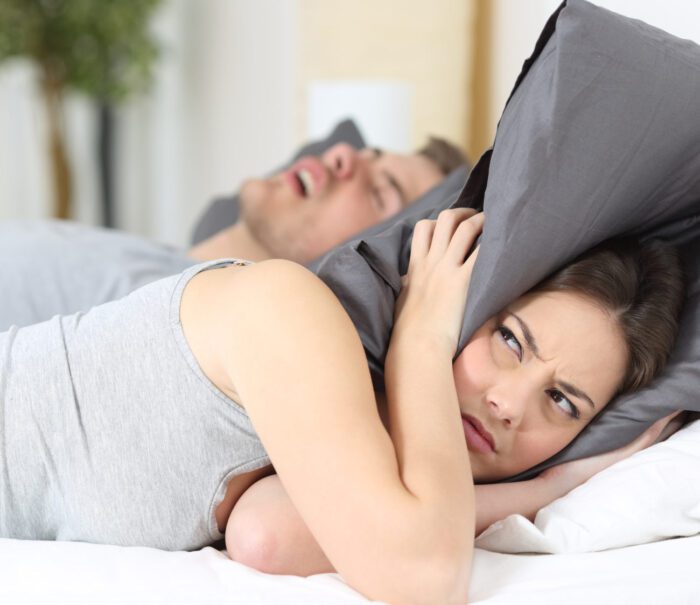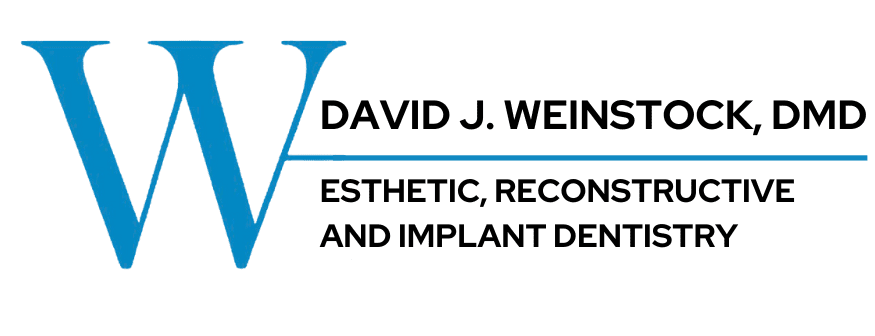Sleep apnea is a chronic medical concern that can create oral and systemic health problems. The most common type is Obstructive Sleep Apnea (OSA). Obstructive Sleep Apnea occurs when the airway becomes blocked during sleep.
When the airway becomes blocked the patient loses oxygen and is unable to breathe. Patients suffering from sleep apnea often wake up multiple times during the night gasping for air. These episodes of the airway closing and reopening can happen many times during sleep sometimes up to 30 times per hour.
When the body’s oxygen flow is interrupted vital organs, including the brain and heart can be damaged.

Risk Factors for Developing Sleep Apnea
There are many factors that may increase your risk of developing sleep apnea. Sleep apnea is often worse in people who drink, smoke, and use sedatives. Patients who are overweight, pregnant, and use drugs are also more likely to snore and suffer from sleep apnea.
The prevalence of sleep apnea increases with age. As many as 50% of elderly men and women suffer from the disorder. If you have a family history of OSA, have a narrow airway or small lower jaw, you also have a higher risk of developing sleep apnea.
Signs & Symptoms of Sleep Apnea
It may be difficult to tell if you have sleep apnea. A condition that occurs while asleep, many patients go undiagnosed for too long. Diagnosing a sleep disorder will typically involve your physician and/or other specialists as well as Dr. Weinstock. Your physician is the only medical professional that is qualified to diagnose you with sleep apnea.
You will most likely need to undergo sleep testing to get an accurate diagnosis. X-rays and exams will also look for signs of a blockage in your airway. Most importantly, your medical team will review your medical history and discuss your symptoms.
Common signs we look for include:
- Chronic fatigue
- Easily distracted, trouble concentrating
- Wake up gasping for air
- Loud snoring (often pointed out by a sleeping partner)
- Frequent headaches
- Snorting or choking while sleeping
- Feeling depressed
- Unusual irritability
- Waking up to a dry mouth
Sleep Apnea Treatment
Without treatment, sleep apnea can lead to many health complications that can impact the quality of life. Untreated, sleep apnea can lead to an increase in heart attacks, stroke, high blood pressure, and heart arrhythmia. It has also been shown to be associated with type 2 diabetes and depression.
Traditionally, a CPAP, short for, continuous positive airway pressure, machine is treatment method. However, oral sleep devices also work to help treat sleep apnea. Dr. David Weinstock offers oral sleep devices as a treatment for sleep apnea.
Oral Sleep Devices for Sleep Apnea
An oral sleep device is similar to a sports mouthguard. They are carefully fabricated to the specifications of your mouth. The device will readjust your bite to keep your tongue from rolling to the back of your mouth during sleep. It works by keeping your airway open, allowing you to breathe normally during sleep without the pauses in breathing.
An oral sleep device will help quell the sound and severity of your snoring. The same loosening of soft tissues often leads to snoring, and an oral sleep device can help prevent that from happening.
Have you undergone a sleep study? Have you been diagnosed with sleep apnea from a sleep specialist? If so, contact our Philadelphia, PA dentist office to learn more about dental appliances. Treat sleep apnea symptoms and avoid the harmful long term effects of sleep apnea today!
Sleep Apnea Treatment FAQs
Can I use a sports mouthguard at night for sleep apnea?
No. Sports mouthguards are only effective while playing contact sports. They are not built like oral appliances for sleep apnea. Although similar, they do not effectively open your airway while you sleep.
How long does it take to cure sleep apnea?
You can find relief from your sleep apnea symptoms in as little as a few days. Although, this does not mean that your sleep apnea will be cured. To cure sleep apnea, you will have to make lifestyle changes such as losing weight, quit smoking, and eating a healthy diet.
What is the best position to lay in with sleep apnea?
Sleeping on your side or on your stomach is most likely the best sleeping position for patients with sleep apnea symptoms. These positions help by positioning your tongue in a way that doesn’t block your airway while you sleep.
